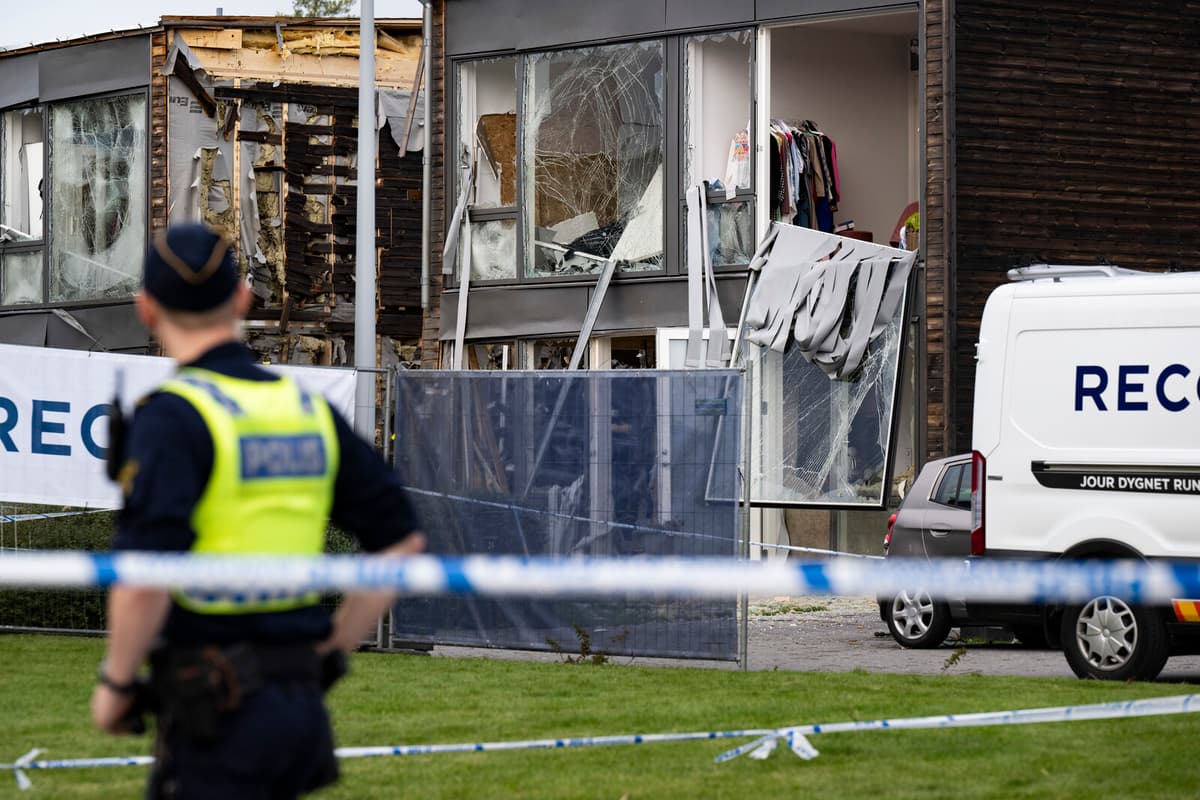People have been killed and homes have been destroyed in the bombings in recent years. In the last six months, 104 bombings have occurred – a doubling compared to the same period last year, according to the police. Many of the bombings are carried out with explosives that are available on the legal market. In January, the police estimated that pyrotechnics, such as firework bombs, were behind half of them.
Now, legislative changes are coming that will make it more difficult for criminals and unauthorized individuals to access so-called explosive goods that require a permit from the municipality. This also includes supervision of the handling of the goods.
But the municipalities made only 401 inspections in 2023, while 3,816 permits were issued, according to the Swedish Agency for Support and Preparedness's annual follow-up. Even in 2022, the inspections were fewer than before the pandemic years.
Has been down-prioritized
The inspections will now increase. The Swedish Agency for Support and Preparedness (MSB) will have a coordinating role and will develop rules for how and when they should be done. There will also be a requirement for inspection if it is deemed necessary.
We see that inspections are expected to have the effect that the permit holder wants to follow the law, since they know they can be controlled. There is also a purpose in being more visible, says Sabine Dahlquist-Hedlund at MSB.
She believes that the few inspections so far are due to the municipalities' different amount of resources and that it has been down-prioritized when there have been no clear requirements. According to Ann-Sofie Eriksson, head of the department for growth and community building at the Swedish Association of Local Authorities and Regions (SKR), some have not had time for inspections during the three years that each permit applies.
We agree that the inspection needs to be prioritized more in this area, where we hope that MSB's support will facilitate for the municipalities, she says.
One permit in the whole country
The crime-preventive perspective is also being tightened. The municipalities will have extended rights to revoke and change permits, as well as the fitness test that is already being done. The permit holder will also be required to report when and where the goods are used, and where they are stored, which has not been the case before.
Previously, the permit applicant could be considered unsuitable in one municipality but continue to handle the goods in another. Now, a municipality's permit will apply throughout the country.
In essence, it has not been wrong, but it will be better to have an overview when there is one and the same permit in the whole country, and can be found in the national register that has been established, says Sabine Dahlquist-Hedlund.
The Swedish Agency for Support and Preparedness (MSB) will have a coordinating role for the municipalities' permit activities for explosive goods. MSB will also be responsible for supervising the municipalities' permit and inspection activities.
In various ways, the crime-preventive perspective in the rules for those who receive permits is being strengthened. This includes strengthening the municipalities' opportunities to change or revoke permits.
The permit holder will be required to report the use of explosive goods and where the goods are temporarily stored in the municipality.
A permit for certain handling of explosive goods that takes place in several municipalities will only need to be examined by one municipality.
Secrecy will be introduced in inspection cases, as is already the case in permit cases.
The legislative changes began to be investigated in May last year and will come into effect on July 15, 2025.
Source: The Riksdag






